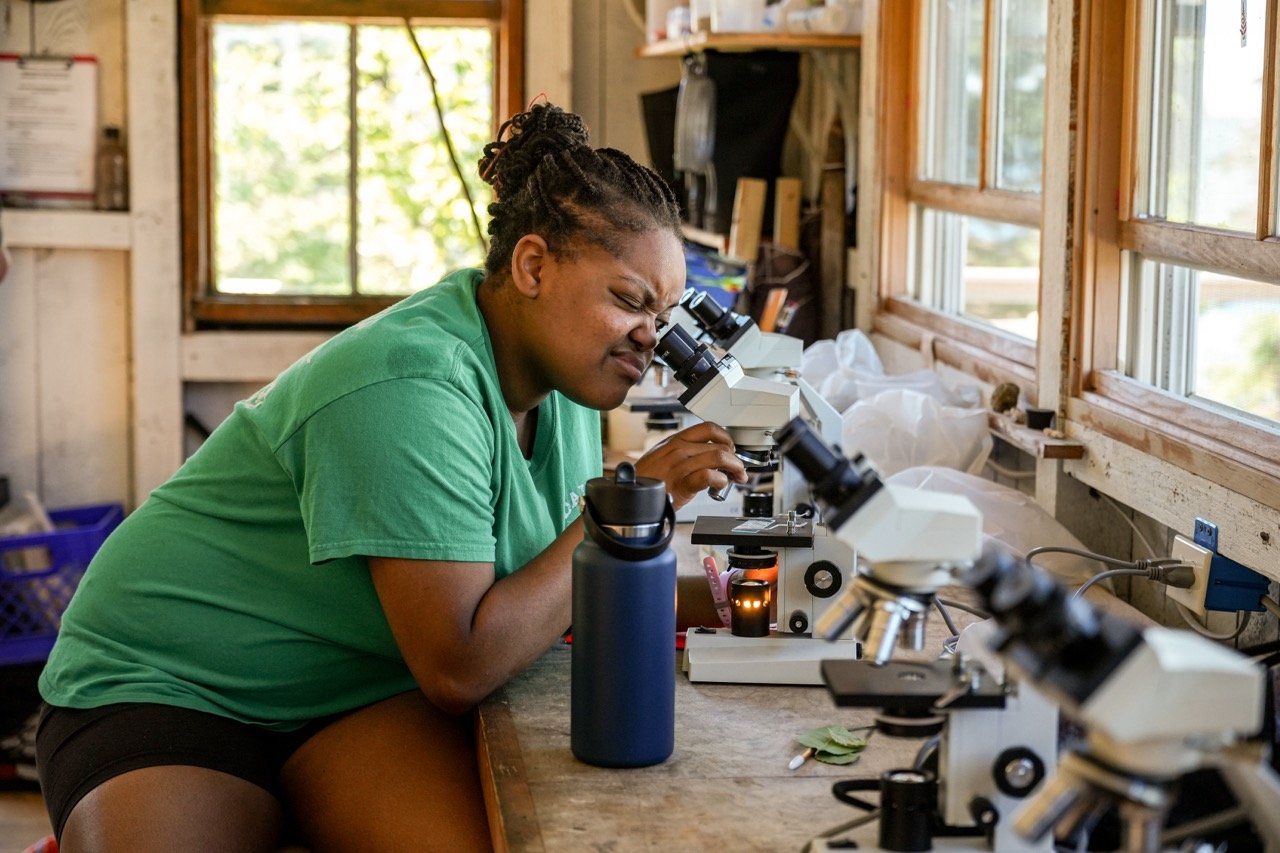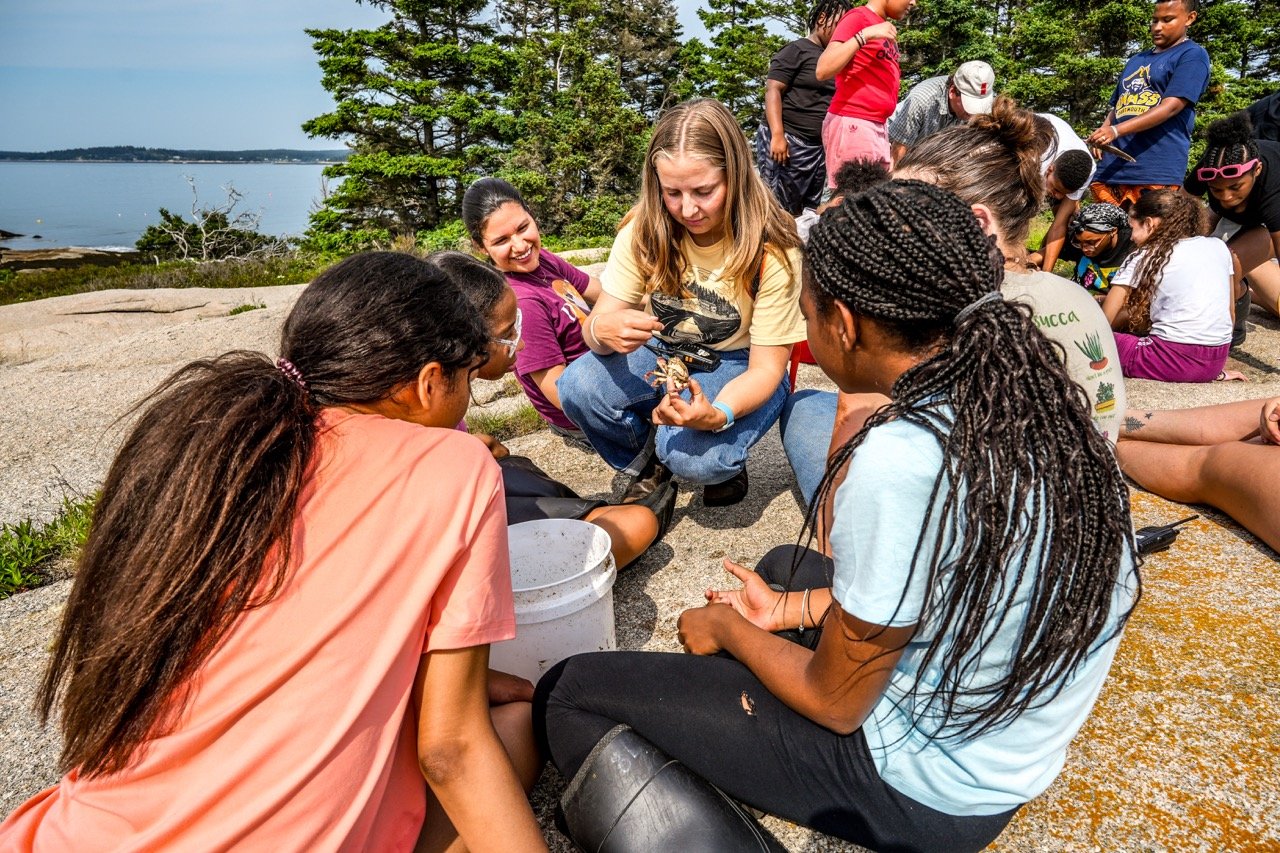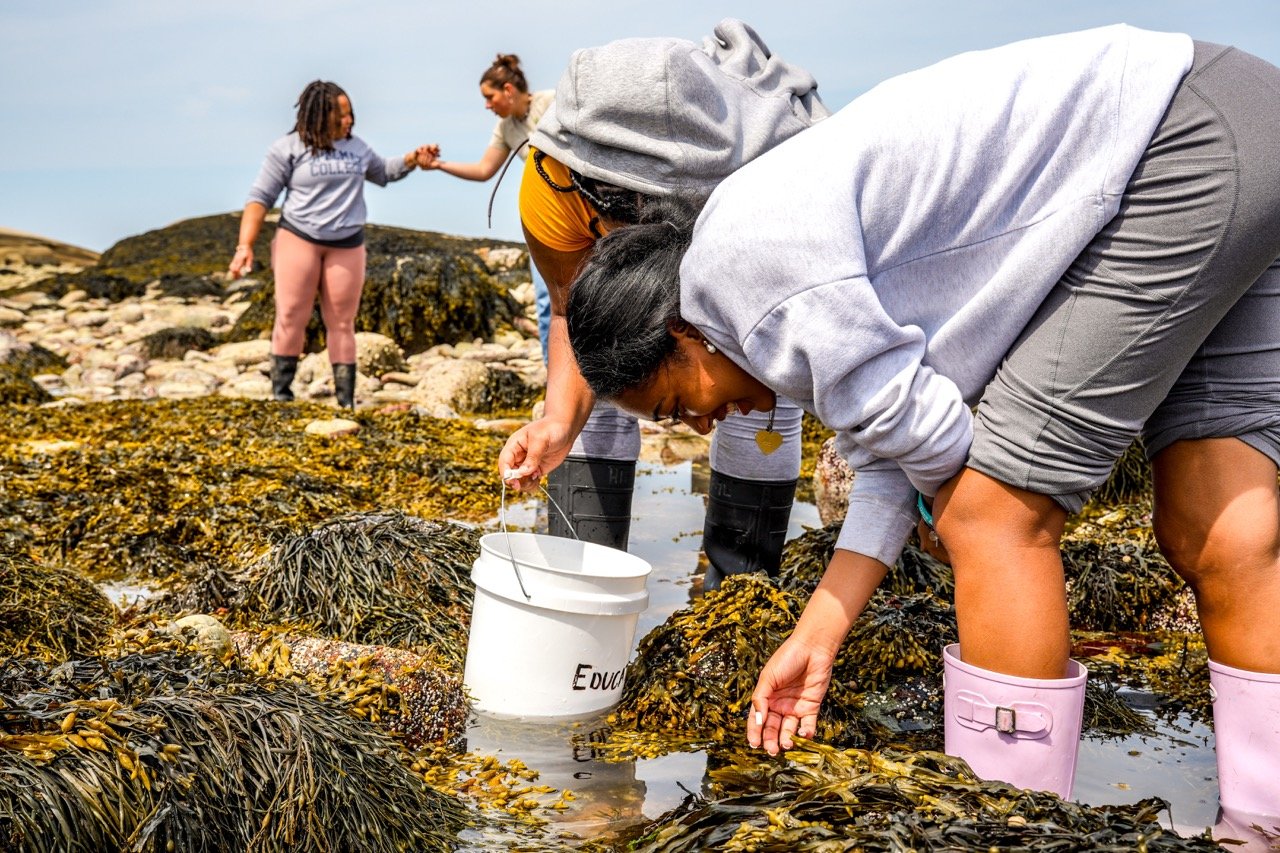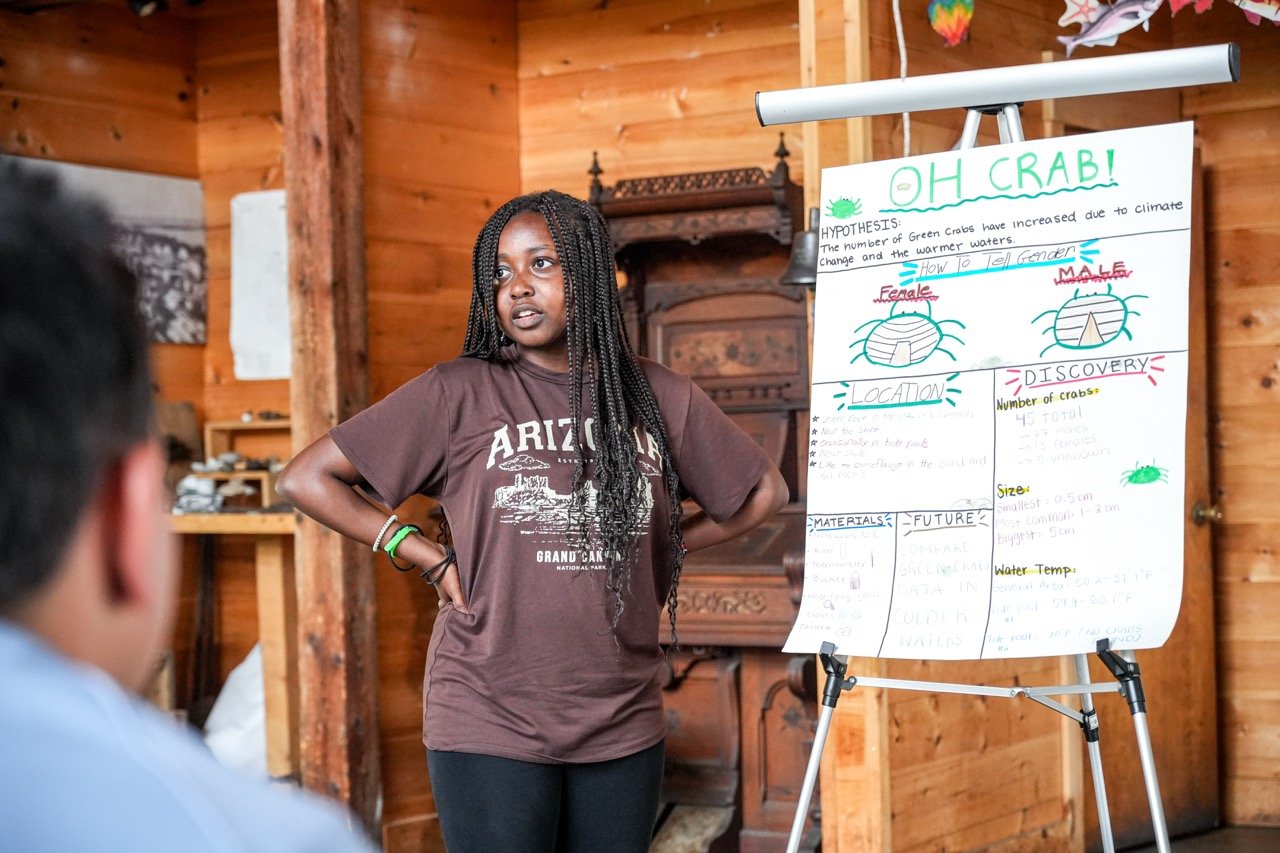Middle School Marine Ecology
Hurricane Island programs embed students in experiences that leverage the art and practices of science as tools for leadership and social change. Through personal and group explorations, students explore their own strengths as transformative leaders who can address the sustainability challenges facing our world today.
At-A-Glance
Dates: July 6th - July 11th, 2025
Ages: Rising 7th & 8th graders
Cost: $1750 - All inclusive of transportation between Rockland and Hurricane Island, housing, meals, snacks, and all programming
The Middle School Summer Science programs are designed for rising 7th and 8th graders with an interest in science, being active outdoors, and exploring Maine’s enchanting coastal ecosystems. Middle School Marine Ecology focuses on intertidal habitats and the recreational and commercial uses of marine resources, including lobstering and the growing aquaculture industry. Throughout the program, students will tap into their own curiosities to delve into scientific observation and the art of forming questions. Students will also consider fisheries health and the effects of human activity and warming ocean temperatures. This educational science program is interspersed with active team building initiatives, rock climbing, and free time to explore the island, swim off the dock, or relax in the sun.
Spending the week off-grid, students will become familiar with sustainable practices on the island such as conserving water and minimizing food waste. Students should be prepared to engage in community living, participate in communal chores and responsibilities, and disconnect from personal technology. Through living and learning together in this dynamic environment, students will begin to explore their own strengths as leaders and how they can leverage science as a tool for social change. Students can expect to leave the island with strengthened connection to the natural world and greater confidence to continue practicing leadership in their home communities.
Middle School Marine Ecology activities may include:
Working with the research team to get hands-on with Hurricane’s scallop aquaculture projects
Exploring the intertidal zone for shoreline invertebrates like sea stars, larval lobsters, nudibranchs, sea urchins, periwinkles, green crabs, and sea cucumbers
Gathering and cooking with seaweed to make amazing chocolate pudding
Using the scientific process to come up with and investigate research questions
Hauling lobster traps and learning about the biggest economic industry in Maine
Cleaning up marine debris from the coastline and brainstorming solutions to produce less waste
“I learned that I like hands-on science better than classroom science, because I was more excited to learn when I could see or feel what we were talking about, for example when we were collecting marine debris by hand and sorting it.”
























